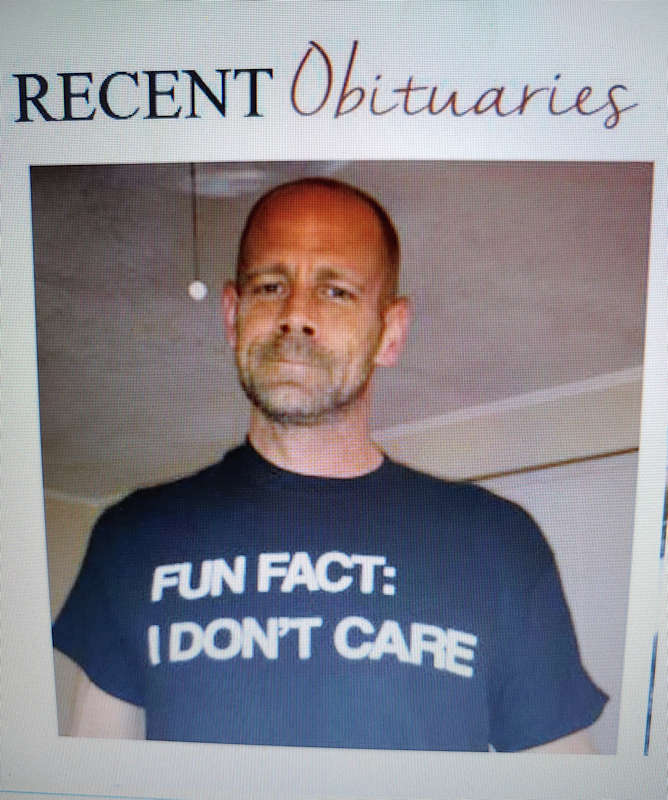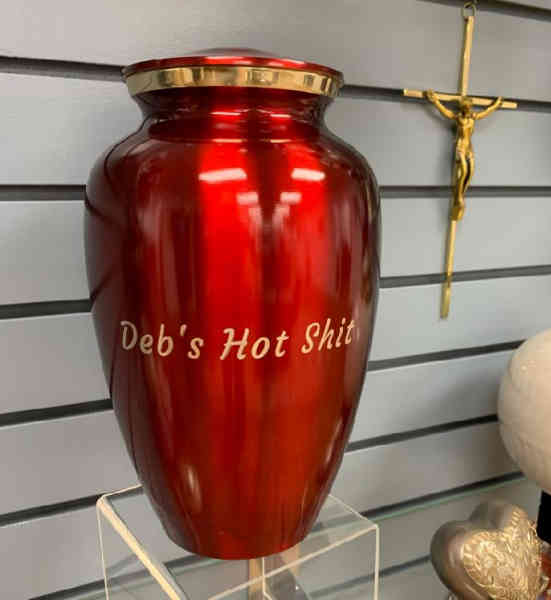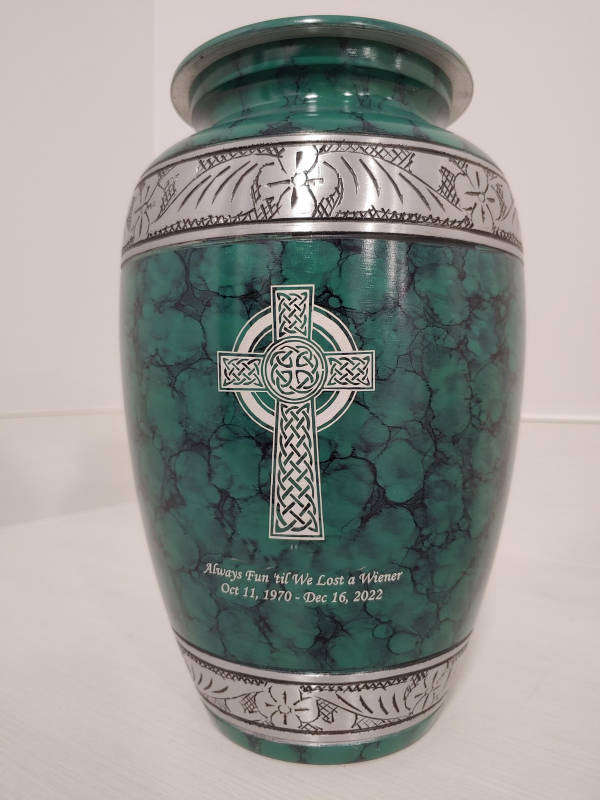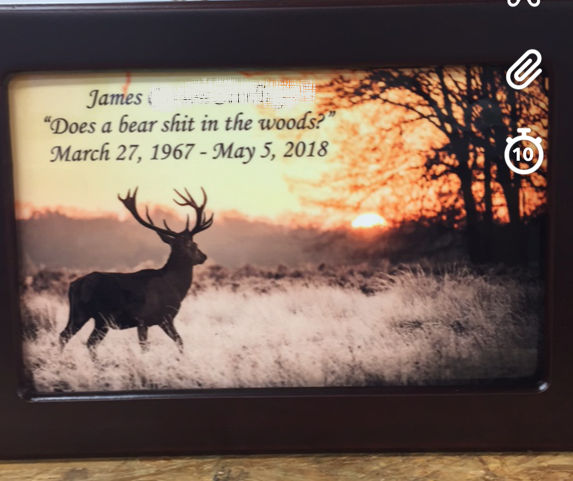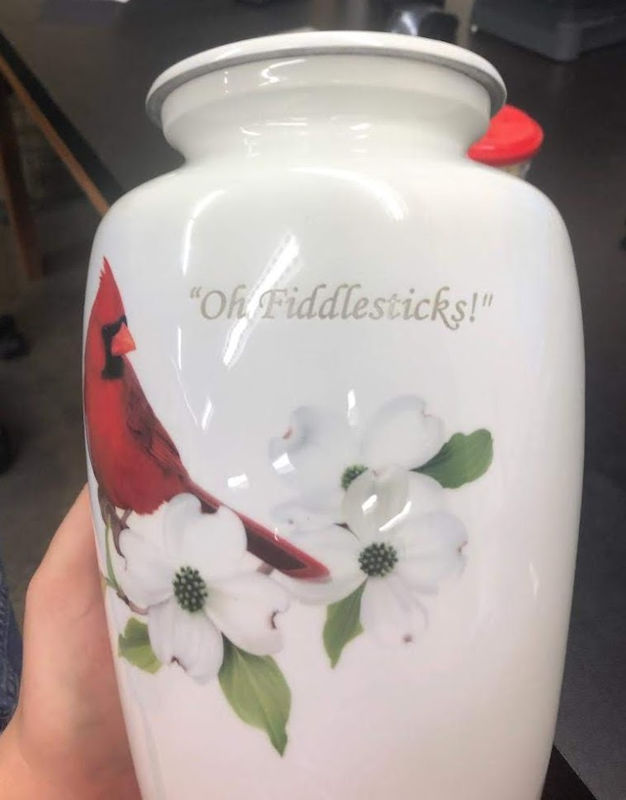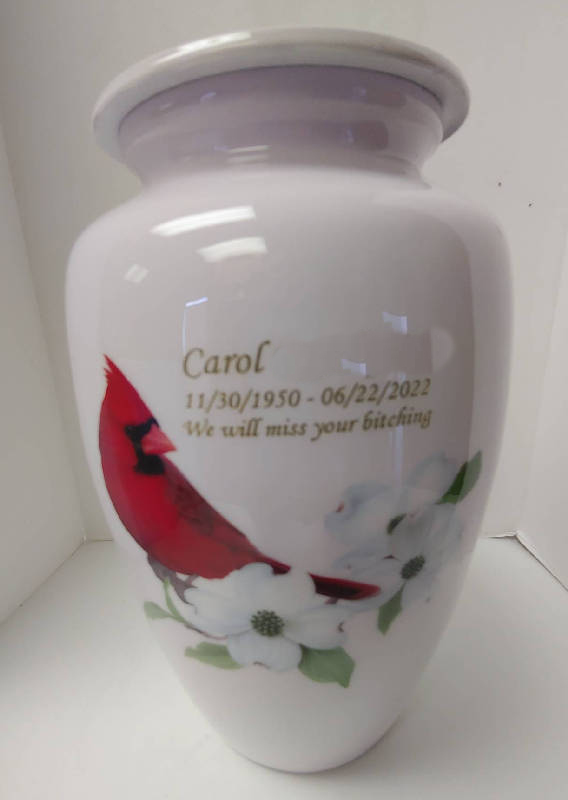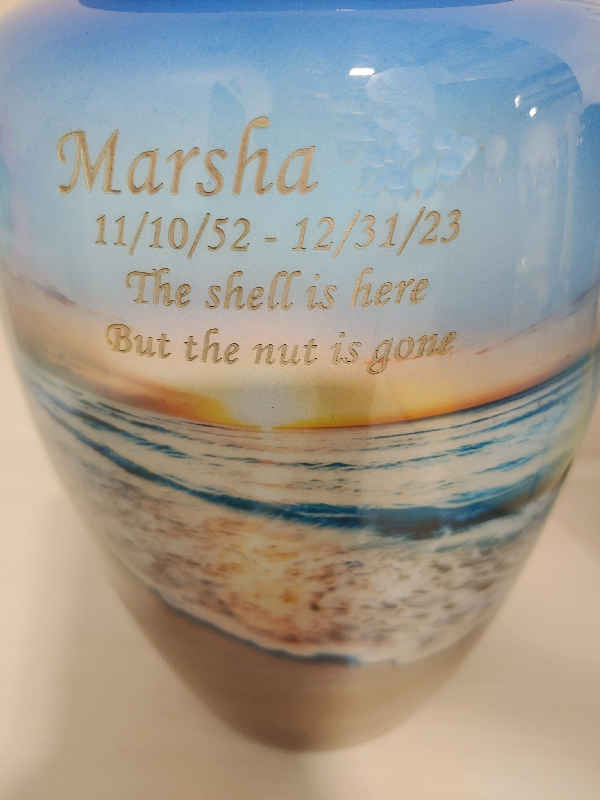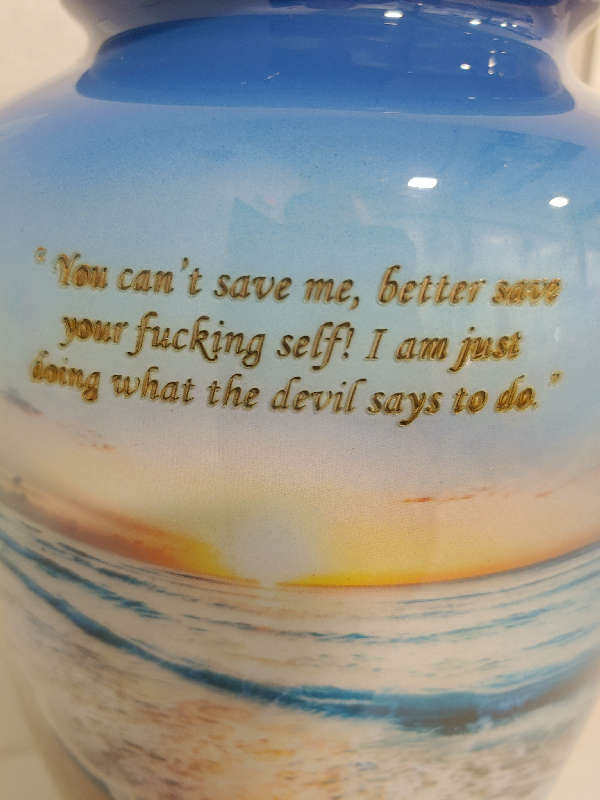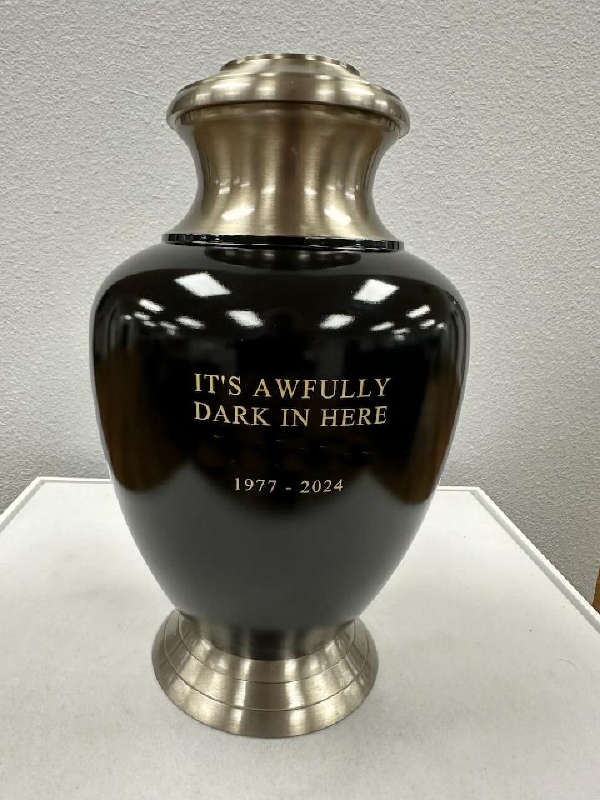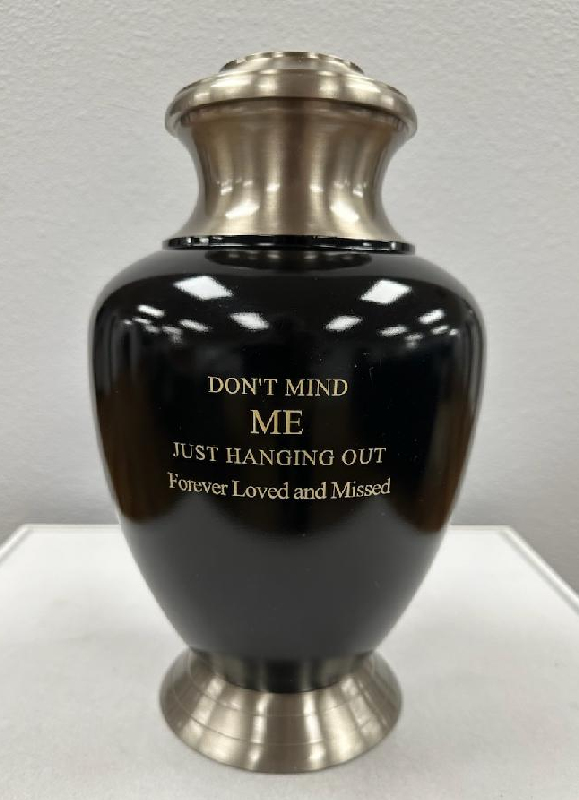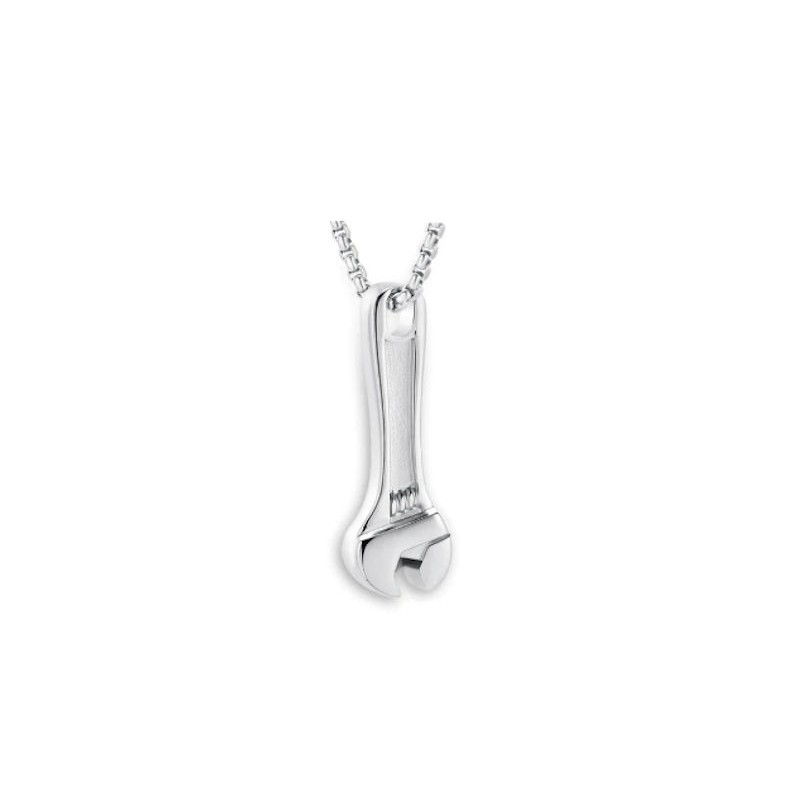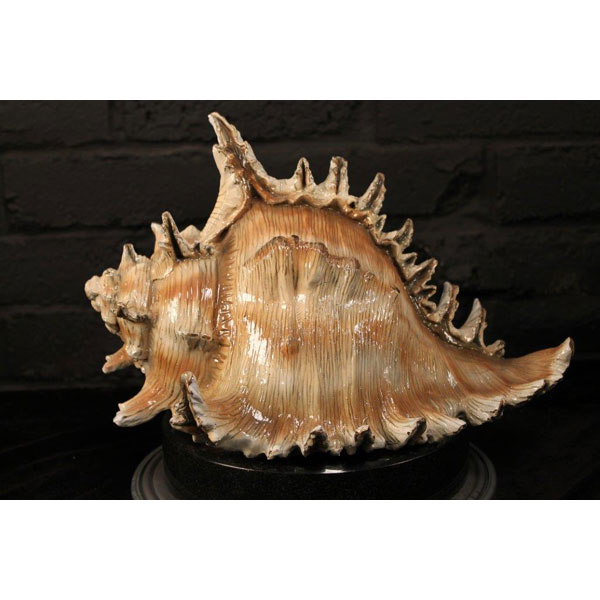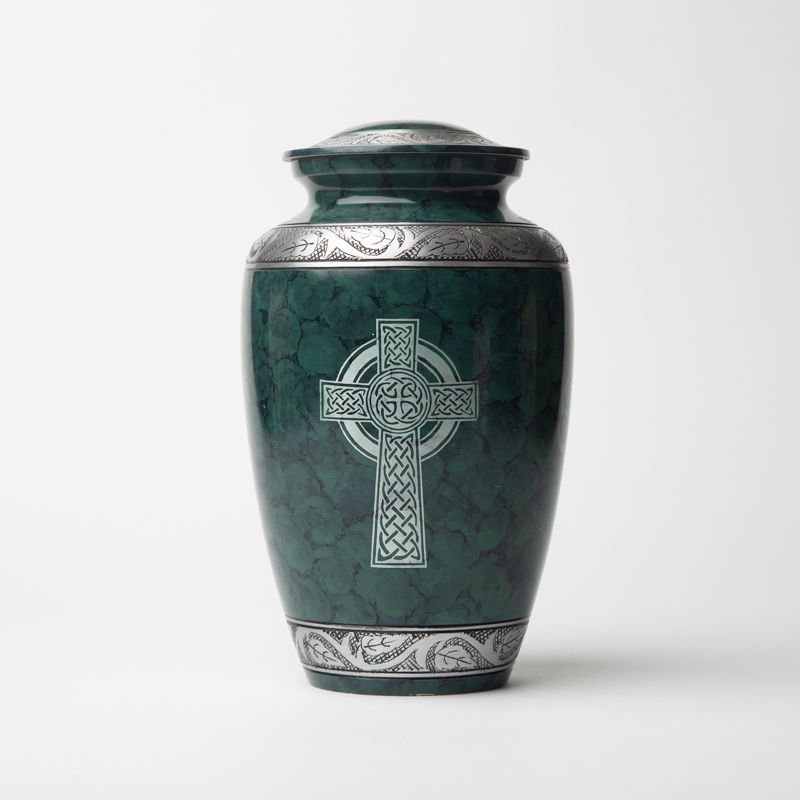When a family buys an urn online, they often want the cremation urn personalized with names and dates. We can usually accommodate the request with laser engraving.
Sometimes we get some crazy requests though. If you request it, we’ll do it, even if we think it’s a bad idea. But, if we are being honest, sometimes these customers get the urn with the disrespectful inscription THAT THEY REQUESTED, and they get upset and probably have regrets. Laser engraving is permanent, so no take backs and we can’t edit or fix it. Choose your words wisely.
Years ago, we got a call from someone who was asking about engraving on an urn for his dad. When I asked him what he wanted to inscribe on the urn, he asked, “Can you engrave cuss words all over it?” We could, and after discussing what the final resting place would be (he was keeping it on display in the home) he backed away from his original vision and went with a more traditional format.
It gave us the idea to launch a “Kiss My Ash Collection” of cremation urns, and over the years we’ve saved a few of the creations that our customers have come up with.
Are these cremation urns dignified? Probably not. But we have to consider that these are grown adults that we are dealing with and maybe the messaging fits the personality of the deceased, or perhaps it was their final wish?
Lucky Shamrock Cremation Urn
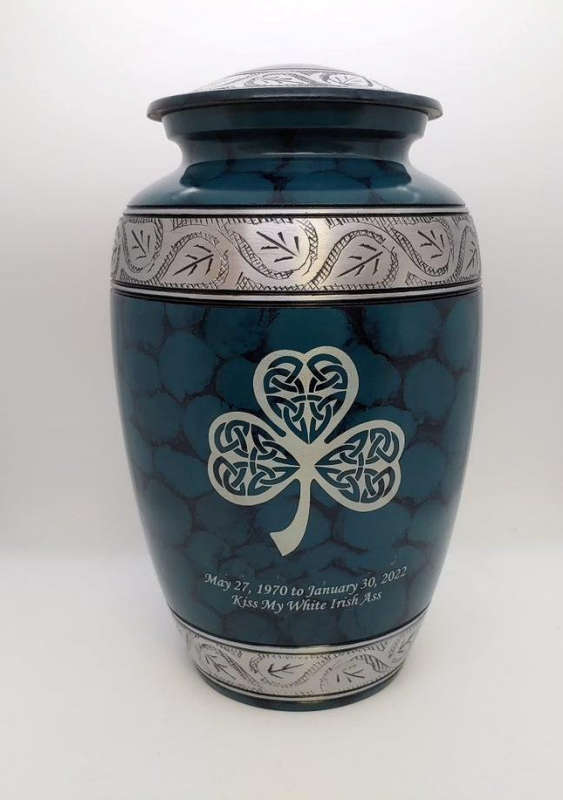
Lucky Shamrock Cremation Urn is a popular style, it looks blue in this photo, but is actually green, but there is no mistake about the color of the deceased’s backside.
Route 66 Motorcycle Urn for Ashes
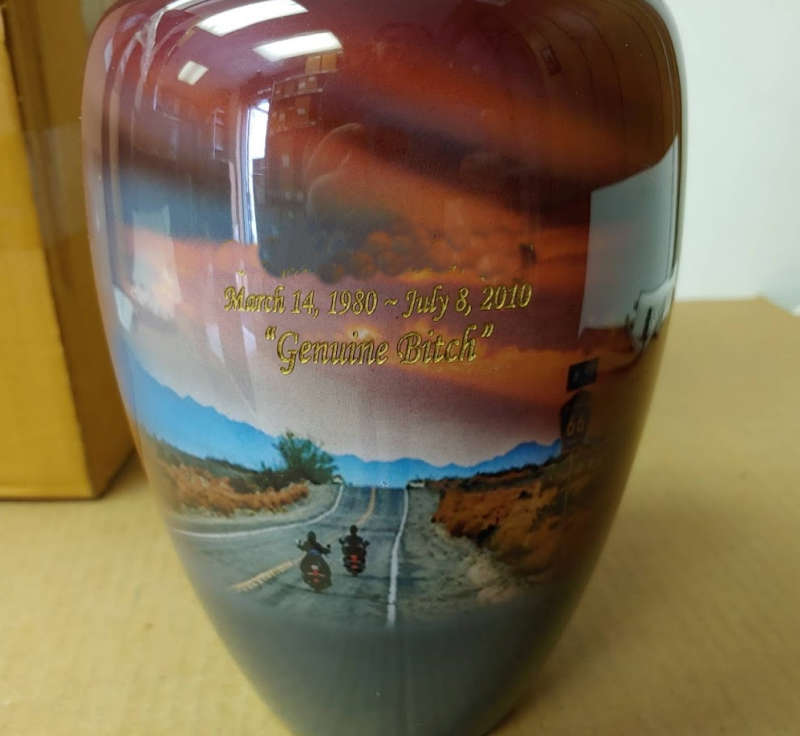
Route 66 Urn for Ashes, and this biker chic had an attitude that I can appreciate.
Another “urn with attitude” was this hot red memorial that probably spoke volumes about the deceased.
Celtic Cross Cremation Urn
The owner of the Celtic Cross Cremation Urn was a little more subtle in the messaging and actually inspired this collection.
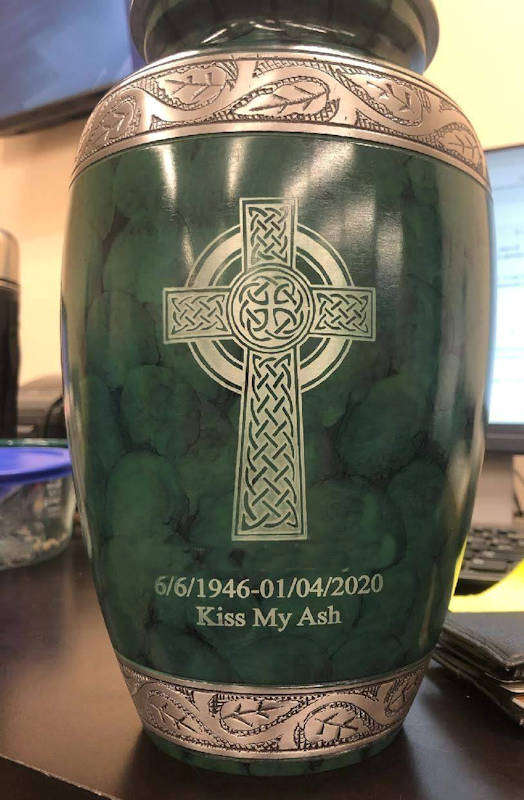
“Always fun till we lost a wiener” not sure what the meaning is, but maybe it’s an inside joke. We giggled a little when we were setting the Celtic Cross urn up for engraving.
Deer in the Woods Cremation Box for Ashes
This cremation box puzzled us, but we just assumed maybe this was a phrase that the departed used often?
Cardinal Cremation Urn
The person that ordered the Cardinal Urn was a little milder and kind of cute. No names, no dates of the deceased, just “Fiddlesticks! “
Carol, on the other hand…maybe she often told her loved ones, “Someday you’ll miss my bitching!” Well, that day is here.
Journey Biodegradable Urn for Scattering Ashes on Water
We’ve all seen the meme on social media, the Journey Biodegradable urn takes it to a new level.
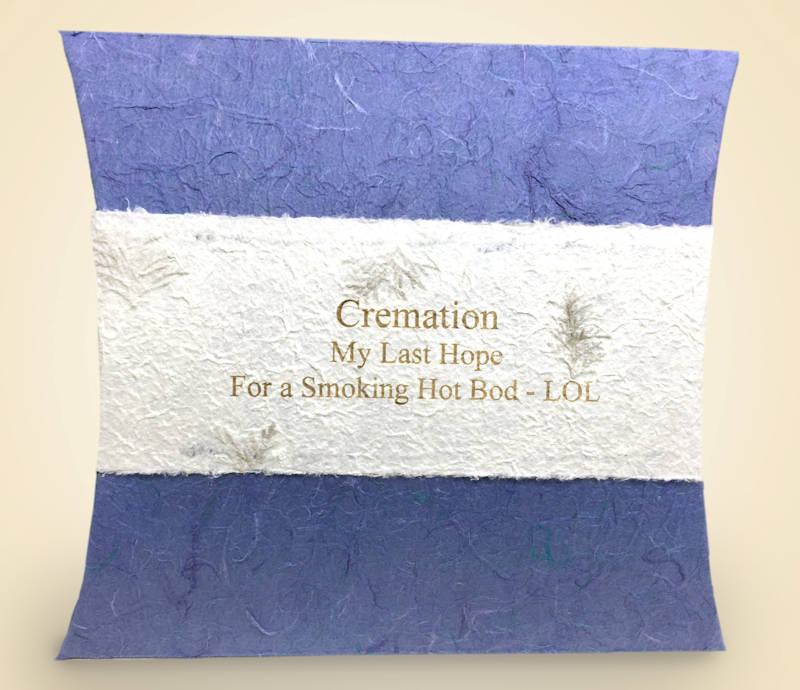
Celtic Cross Wood Box for Ashes
Recently we had a client who wanted an American made urn for his father, who had a distinguished military career and retired as a commercial pilot.
Our customer picked the Celtic Cross Wood Box, a work of art in hand rubbed dark walnut.
When he submitted the inscription, I had to ask…..
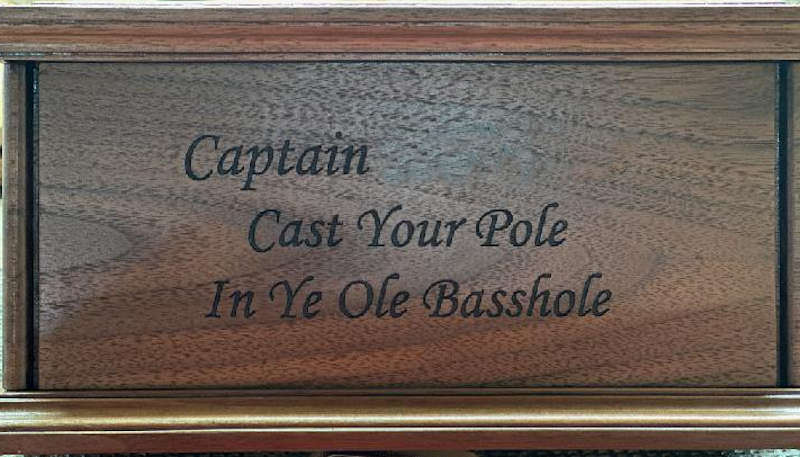
It turns out that his dad was an avid outdoorsman who loved to hunt and fish. Dad lived in a rural area and there was a couple of places nearby that he liked to fish. He referred to one of them as his “bass-hole”.
Maybe this was a situation where the deceased would tell the family “Someday, you’ll miss my bitching!” Whatever the scenario was, the family decided to inscribe their sentiments on an urn for eternity. They ordered and we delivered, we’ll never know the back story.
Siesta Key Beach Urn for Adult
A couple of examples of personalization on the Siesta Key Beach Urn. It comes on several different sizes, and these examples are done on the full-size adult.
The first one must have derived from the old story about the minister who was presiding over a funeral service and while trying to make a deep thoughtful statement, he instead made a memorable gaff that the mourners still laugh about today. “Here we have the shell” he said while gesturing to the casket, “but the nut is gone”.
One of our customers took that statement to the grave. Literally.
This next one was lifted from some song lyrics that were special to our clients’ adult daughter.
She called to ask about personalizing an urn and wanted to know if we had any objections to profanity. I told her that we would add whatever she wanted with the understanding that there are no returns or regrets.
I explained to her that we had experience with customers who were upset with their choice of words during a highly emotional time, and encouraged here to think it about it and if she still wanted the verse, we would do it.
Monday morning the order was placed and I was a little shocked, but she had explained that her daughter was an addict who had struggled with addiction for years and these words were spoken to her mother on more than one occasion.
In Mother’s defense, she did have a more loving message on the back side of the urn. She and I joked that it was a sweet and salty mix of sentiments.
We don’t pretend to try to understand why people choose the messaging they choose for the urns. One of our collogues sent this example that they had recently done for a client.
There are more, but we didn’t always get the pictures to prove it. All in all, my top choice for the Kiss My Ash urn collection is one that we do not have an image for, but was very simple and direct. Again, no name, no dates. Just the simple message: “SHE TRIED“.

